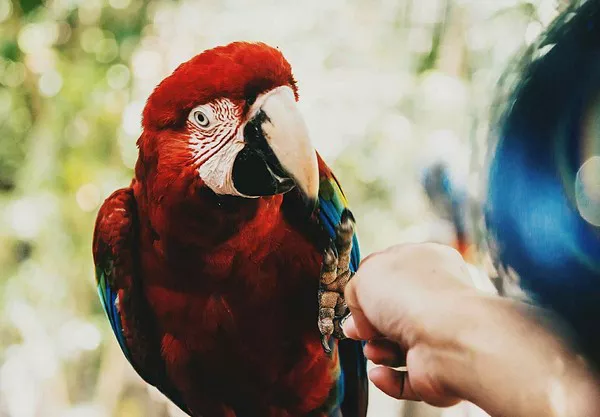Sphynx cats are one of the most distinctive and beloved cat breeds worldwide. With their hairless bodies, large ears, and striking personalities, they have captured the hearts of cat lovers everywhere. However, there is one question that frequently arises when discussing this unique breed: Do Sphynx cats smell?
In this article, we’ll explore whether or not Sphynx cats are prone to odors, what factors contribute to any potential smells, and how you can care for your Sphynx to ensure they remain fresh and healthy. By the end of this article, you’ll have a clear understanding of what to expect when living with a Sphynx cat and how to properly care for them.
1. The Fascination with Sphynx Cats
Before diving into the specifics of Sphynx cat care, let’s briefly discuss what makes these cats so captivating.
Sphynx cats are hairless, which is an interesting and somewhat surprising feature considering that cats are known for their fur. The breed originates from Canada in the late 1960s when a natural genetic mutation resulted in a hairless kitten being born to a domestic cat. The breed’s unusual appearance—large ears, wrinkled skin, and prominent cheekbones—combined with their playful, affectionate personalities, quickly garnered the attention of cat lovers.
While their lack of fur might initially suggest a low-maintenance pet, Sphynx cats require a different kind of care compared to their fur-covered counterparts. One of the primary concerns is how to manage their cleanliness and odor, particularly because they don’t have the natural fur that usually helps in keeping bacteria at bay.
2. Why Do Sphynx Cats Smell?
First, let’s address the question head-on: Do Sphynx cats smell?
The answer is not entirely straightforward. Sphynx cats, like all cats, have the potential to produce odors, but their scent profile is distinct compared to that of other cat breeds. Hairless cats are often perceived as smelling more than other types of cats due to several unique factors.
Oil Production
One of the primary reasons Sphynx cats can smell is due to their skin’s oil production. Unlike furry cats, which have fur to absorb oils and sweat, Sphynx cats have exposed skin that doesn’t have that barrier. Their skin naturally produces oils that would typically be absorbed by their fur. However, without fur, these oils can accumulate on their skin, which may lead to a greasy and potentially smelly residue if not cleaned properly.
These oils can also trap dirt, dust, and environmental debris, making it crucial for Sphynx cat owners to bathe their pets regularly.
Lack of Fur to Absorb Odor
Since Sphynx cats are hairless, they do not have the natural coat that helps trap odors in the fur of other cats. This means that if they come into contact with something smelly, it can cling to their skin, which might lead to a stronger or more noticeable odor.
For instance, if a Sphynx cat rolls in dirt, food, or any other odorous substance, the lack of fur means the scent stays on the skin rather than being absorbed by the cat’s fur. As a result, their scent may be more pronounced.
Skin Issues
Like any other breed of cat, Sphynx cats can sometimes develop skin conditions that might contribute to a bad smell. For example, fungal infections, yeast overgrowth, or other dermatological issues can result in unpleasant odors. These conditions are often associated with oily skin or poor hygiene and can be aggravated if the cat’s skin is not cleaned regularly.
Sphynx cats are also more prone to acne, which can affect their skin and lead to an odor if not treated promptly.
3. How to Minimize Odor in Sphynx Cats
While Sphynx cats can potentially smell, the good news is that with the right care, you can minimize or even eliminate any unpleasant odors. Here’s how you can manage their hygiene and keep them smelling fresh:
Regular Bathing
Sphynx cats need regular baths to prevent oil buildup and to keep their skin clean. Since their skin is constantly producing oils, it’s essential to bathe them at least once a week (and sometimes more, depending on the individual cat’s needs). Bathing helps remove excess oil, dirt, and dead skin cells, which can help reduce odors.
When bathing your Sphynx cat, be sure to use a gentle, pet-safe shampoo formulated for sensitive skin. Human shampoos or harsh chemicals can irritate their skin and make odor problems worse.
Use Gentle Skin Care Products
In addition to regular bathing, using specialized skin care products can help manage the natural oils and prevent skin issues. Consider using wipes designed for hairless cats to wipe down their bodies between baths. These can help remove oils and prevent the buildup of grime that might cause smells.
Pet wipes are a convenient way to keep your Sphynx clean without needing a full bath, especially in between their weekly washing.
Clean Their Ears Regularly
Sphynx cats are also known for having large ears, which can accumulate wax and debris more easily than cats with smaller ears or fur-covered ears. Left unchecked, earwax buildup can create an unpleasant odor. To prevent this, check your cat’s ears regularly and clean them with a damp cloth or cotton ball, using ear cleaners that are safe for cats. Avoid using cotton swabs, as they can cause injury if not used carefully.
Keep Their Environment Clean
The environment in which your Sphynx lives plays a crucial role in how they smell. Keeping their bedding, litter box, and play areas clean will help maintain a fresh atmosphere. Regularly washing their bedding and blankets can prevent odors from accumulating in their living space.
Make sure to change the litter box frequently, as cats—especially those without fur—are sensitive to strong smells and may become uncomfortable if their environment is too dirty.
Diet Considerations
What your Sphynx eats can also have an impact on their body odor. Feeding them high-quality, nutritious food can help support healthy skin and coat (or in their case, healthy skin) and reduce the chances of an unpleasant smell. Cats with poor diets may have a stronger odor, which can stem from digestive issues or an unhealthy coat.
Consult with your vet to choose the right diet for your Sphynx, especially one rich in omega-3 and omega-6 fatty acids, which promote healthy skin.
Regular Vet Checkups
Frequent vet visits are essential for ensuring your Sphynx remains in good health and free from any underlying medical conditions that could lead to odors. Skin infections, fungal issues, or other medical conditions can sometimes cause unpleasant smells, and a vet can help diagnose and treat these problems promptly.
4. Common Sphynx Cat Health Issues That May Affect Smell
Sphynx cats, despite their unique characteristics, are generally healthy. However, they can be prone to certain health conditions that may cause odors. Let’s take a look at some of the most common ones:
Skin Infections
Due to their lack of fur, Sphynx cats are at higher risk for skin infections. These can be caused by bacteria, yeast, or fungi, which may lead to a foul odor if left untreated. Symptoms of skin infections include redness, irritation, hair loss, or scabs. If you notice any of these signs, it’s important to take your Sphynx to the vet for an evaluation.
Cat Acne
Sphynx cats are more susceptible to feline acne, which is the inflammation of hair follicles around the chin and mouth. This condition often results in blackheads, pimples, and occasionally pus. If not treated, it can cause an unpleasant smell due to the buildup of oils and bacteria.
Regularly cleaning the area around your Sphynx’s chin and avoiding harsh cleansers will help prevent acne from worsening.
Ear Infections
Sphynx cats are also more prone to ear infections due to the unique shape and size of their ears. If their ears become infected, they may emit a strong, unpleasant odor. Keeping their ears clean and dry can help reduce the chances of infections.
Dental Problems
Dental issues, such as periodontal disease, can lead to bad breath in any cat. Sphynx cats are not exempt from this problem, so it’s important to brush your cat’s teeth regularly and schedule annual dental checkups with your vet.
Conclusion
In conclusion, Sphynx cats can smell, but with proper care, you can keep their odor under control. Their hairless skin produces oils that can lead to smells, but regular bathing, ear cleaning, and proper hygiene can significantly reduce odors. Additionally, a healthy diet, regular vet checkups, and a clean living environment will help keep your Sphynx cat smelling fresh.
While Sphynx cats are more high-maintenance than other breeds in terms of grooming, they are also loving, playful, and affectionate companions. By understanding their unique needs and addressing potential odor issues, you can enjoy a happy, healthy life with your Sphynx cat, free from the worry of unpleasant smells.
If you’re considering adopting a Sphynx cat, be prepared for their grooming requirements and make sure you’re committed to providing them with the care they need to stay clean and odor-free. With a little extra effort, your Sphynx will thrive and become a cherished part of your family.
Related Topics:

























